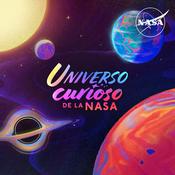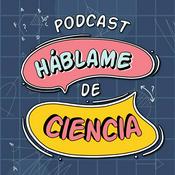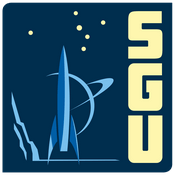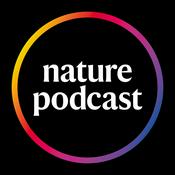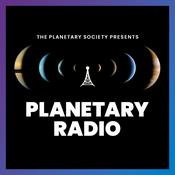35 episodios

TWiS 191: Mars Throwback - The Pioneering Work of Dr. Robert Zubrin
28/12/2025 | 53 min
One of our favorite interviews of 2025 was with Dr. Robert Zubrin, founder of the Mars Society and the mind behind Mars Direct, a streamlined approach to reaching the Red Planet with human beings that was later largely adopted by NASA in their mission designs. It's a fascinating story about a man who continually swam upstream against strong currents of the aerospace establishment. His seminal book, "The Case for Mars," has enjoyed multiple reprints and influenced millions. Join us for this encore of an informative and forward-looking episode! Hosts: Rod Pyle and Tariq Malik Download or subscribe to This Week in Space at https://twit.tv/shows/this-week-in-space. Join Club TWiT for Ad-Free Podcasts! Support what you love and get ad-free audio and video feeds, a members-only Discord, and exclusive content. Join today: https://twit.tv/clubtwit

TWiS 190: Holiday Special 2025 - A Look Back at 2025 in Space!
19/12/2025 | 1 h 3 min
It's our annual holiday special for 2025, in which we look back at the past year in space—its ups, its downs, its all-arounds. What a year it's been, and after all the challenges and hullabaloo, we're grateful in a post-Thanksgiving fashion to welcome Jared Isaacman, at last, as the new NASA Administrator. What he will do and how remains largely unknown, but we do believe he has the nation's interests at heart, and the man knows people are watching. But there are a lot of other stories and we've done our best to stuff as many as we can into this virtual Christmas space stocking! Please join us for this year-end roundup! Headlines & Looking Back at 2025: New Executive Order Targets Space Superiority Starlink Satellite Breaks Up in Orbit, SpaceX Responds Interstellar Comet ATLAS: Extraterrestrial Conspiracies and Public Fascination Isaacman Confirmed as New NASA Administrator Project Athena: NASA's New Strategic Direction? Artemis 2 Mission Prep and Timeline Shifts Mars Sample Return: Uncertain Costs and New Proposals Commercial Spaceflight: SpaceX Successes, Boeing Troubles Perseverance Rover Finds Possible Mars Biosignatures Recap Space Shuttle Discovery Relocation Battle Heats Up New Moon Discovered Around Uranus Webb Telescope and Hubble Milestones International Space Station Celebrates 25 Years of Crewed Work U.S. Space Policy Shifts and NASA's New Leadership Satellite Operations: Starlink's Reliability and Space Junk Concerns Hosts: Rod Pyle and Tariq Malik Download or subscribe to This Week in Space at https://twit.tv/shows/this-week-in-space. Join Club TWiT for Ad-Free Podcasts! Support what you love and get ad-free audio and video feeds, a members-only Discord, and exclusive content. Join today: https://twit.tv/clubtwit

TWiS 189: Privatizing Orbit - The Pioneering Work of Jeffrey Manber
12/12/2025 | 1 h 13 min
This week, we talk with our favorite Newspace Buccaneer, Jeffrey Manber. When so many people were touting their private spaceflight dreams in the 1980s, Manber took the next enormous stride and actually made it happen. He formed the Office of Space Commerce within the US Department of Commerce at the invitation of the Reagan administration, forged the first commercial relations with the then-Soviet Union, bridged that into the post-USSR period, and was responsible for the first commercial spaceflight to the then-mothballed Soviet-era Mir space station with a crew that stayed there for 70 days. He then went on to develop a variety of commercial space enterprises, from the first commercial platform to release smallsats from the ISS to initiating the Bishop airlock that became part of the space station. He also started Nanoracks, the first privately developed and standardized satellite deployment mechanism to fly. Finally, he initiated Starlab, the private space station currently under development by Voyager Technologies and a consortium of aerospace companies. Join us for this very special episode with one of the key founders of NewSpace! Headlines: SpaceX Plans 2026 IPO and Possible $1.5 Trillion Valuation NASA Loses Contact with Mars Maven Orbiter Discussion of Star Trek's New Starfleet Academy Series Trailer Main Topic: Privatizing Orbit and the Roots of Commercial Space Jeffrey Manber Details His Early US-Russian Commercial Space Collaborations His Space Journalism Origins and Shaping Commercial Space Policies Inside the Launch of Commercial Space Fund and the Office of Space Commerce First US Commercial Contracts with the Soviet Union and Mir Space Station Navigating Washington Policy and Export Licenses for Soviet Deals Attempt to Privatize Mir: Mirkorp, Leasing the Space Station, and Commercial Astronaut Crews The Rise of Nanoracks and Commercial Payloads on the ISS Building Starlab: Partnerships, Scale, Launch Plans, and Commercial Design Comparing Starlab's Ambitions to Vast, Axiom, and China's Tiangong Evaluating SpaceX's Public Offering and Its Impact on Elon Musk's Strategy Jeffrey Manber's Other Projects: Writing About Newspace and President Lincoln Thoughts on America's Future in Commercial Orbit and Personal Memoir Plans Hosts: Rod Pyle and Tariq Malik Guest: Jeffrey Manber Download or subscribe to This Week in Space at https://twit.tv/shows/this-week-in-space. Join Club TWiT for Ad-Free Podcasts! Support what you love and get ad-free audio and video feeds, a members-only Discord, and exclusive content. Join today: https://twit.tv/clubtwit

TWiS 188: A New NASA Leader Rises? - Trump's NASA Chief Pick Jared Isaacman Meets Congress Again
05/12/2025 | 58 min
Jared Isaacman, the billionaire entrepreneur, philanthropist, and private astronaut, took on Capitol Hill this week in his second confirmation hearing as President Trump's pick for NASA's next leader. Here's what it could mean, plus: A Russian cosmonaut got kicked off a SpaceX flight for allegedly trying to steal spacecraft secrets, China's 1st reusable rocket Zhuque-3 reached orbit, but crashed and burned (and exploded) during landing, and Russia accidentally wrecked the only launch pad it has for astronauts with Thanksgiving's new ISS crew launch. Headlines: Russian Cosmonaut Pulled from SpaceX Crew 12 Mission over Alleged Incident at SpaceX HQ Russian Soyuz Launch Pad Damaged After Thanksgiving Crew Mission, Threatening Future Flights China's Land Space Rocket Nearly Sticks First Reusable Launch and Landing—Explodes on Return Scientists Find Time Passes Faster on Mars Than Earth, Thanks to Relativity Main Topic: Jared Isaacman's Bid to Become NASA Administrator Isaacman Returns for Second Senate Confirmation Hearing After Trump Re-Nominates Him Controversy Over SpaceX Ties, Conflict of Interest, and Elon Musk's Influence Bipartisan Support from Astronauts, Industry, and Lawmakers Highlights Isaacman's Appeal Project Athena Leaked: Isaacman's Vision for NASA and Debate on Earth Science Outsourcing Congressional Drama Over Artemis Funding, Gateway, and the US-China Race to the Moon Questions Around Space Shuttle Discovery's Possible Move to Houston Anticipation Builds for Senate Vote and NASA's Need for Stable Leadership Ahead of Artemis 2 Host: Tariq Malik Guest: Mike Wall Download or subscribe to This Week in Space at https://twit.tv/shows/this-week-in-space. Join Club TWiT for Ad-Free Podcasts! Support what you love and get ad-free shows, a members-only Discord, and behind-the-scenes access. Join today: https://twit.tv/clubtwit

TWiS 187: An Inspired Enterprise - A History of Star Trek with Glen Swanson
21/11/2025 | 1 h 8 min
Were you inspired by "Star Trek" (or one of its innumerable spinoffs) as a young person? We know we were, so it was a pleasure to invite Glen Swanson, author of the new Star Trek history book "Inspired Enterprise" onto the show. We've all heard lore about the original series, but Swanson, who was previously the Chief Historian at the Johnson Space Center, used his prodigious skills to perform a deep dive into the topic. From Gene Roddenberry's original inspiration to working with Caltech, the RAND Corporation, and NASA; and on to the design of the good ship Enterprise itself (and the very popular AMT models that followed), this book provides everything you need to know to be a certified Trekker. Headlines: Comet 3I Atlas confirmed as a comet, not a spacecraft & NASA releases new images and details of the comet SpaceX's Starship Version 3 booster suffers damage during test Uranus reaches yearly opposition—best viewing opportunity Main Topic: The Real Inspirations Behind Star Trek Glen Swanson shares career highlights as a NASA historian and magazine founder How Gene Roddenberry's background and influences shaped Star Trek NASA's direct involvement and technical guidance for Star Trek's creators The significant role of the aerospace industry, Rand Corporation, and real-world science in Star Trek's development The story behind NASA and the Smithsonian Enterprise shooting model connections AMT's plastic model kits fueled fan obsession and supported the show's visuals Influences from movies like Robinson Crusoe on Mars and Forbidden Planet Space Station K7 design's origins traced to NASA and Douglas Aircraft concepts Star Trek's impact on inspiring real-life astronauts and the space community Glen Swanson's book, "Inspired Enterprise," and how you can get a signed copy Hosts: Rod Pyle and Tariq Malik Guest: Glen Swanson Download or subscribe to This Week in Space at https://twit.tv/shows/this-week-in-space. Join Club TWiT for Ad-Free Podcasts! Support what you love and get ad-free shows, a members-only Discord, and behind-the-scenes access. Join today: https://twit.tv/clubtwit
Más podcasts de Ciencias
Podcasts a la moda de Ciencias
Acerca de This Week in Space (Audio)
Escucha This Week in Space (Audio), ASPEN Podcasts y muchos más podcasts de todo el mundo con la aplicación de radio.net
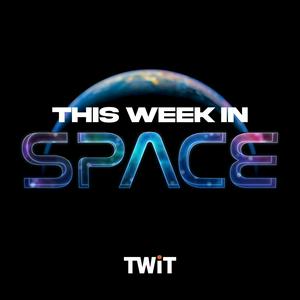
Descarga la app gratuita: radio.net
- Añadir radios y podcasts a favoritos
- Transmisión por Wi-Fi y Bluetooth
- Carplay & Android Auto compatible
- Muchas otras funciones de la app
Descarga la app gratuita: radio.net
- Añadir radios y podcasts a favoritos
- Transmisión por Wi-Fi y Bluetooth
- Carplay & Android Auto compatible
- Muchas otras funciones de la app


This Week in Space (Audio)
Descarga la app,
Escucha.









